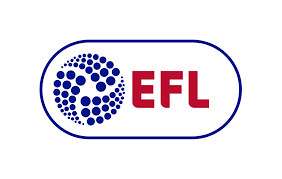By Paul Nicholson
March 26 – The £50 million relief package the English Football League will only stretch until the end of April, according to a research report by the University Campus of Football Business (UCFB).
The current suspension of play runs until end April, but any further extension will leave clubs needing more financial help and if it is not there, more funding from owners or potentially facing the prospect of insolvency.
The report, by finance academic Chris Winn at UCFB, says Championship sides (assuming four home games over the period) will lose on average £865,000 in general admissions match-day cash flow over the existing seven-week suspension period, while League One sides will lose on average £250,000, and League Two sides around £150,000.
Championship clubs, depending on whether they are receiving a Premier League parachute payment or not, generally rely on up to 40% of their total income from match day receipts. There is then the added issues that if clubs don’t fulfil their matches broadcasters and commercial partners start to ask for money back.
“When you drop down the leagues the importance of match-day income increases exponentially,” said Winn.
“The relief package from the EFL, though gratefully received by each club and much needed, is only going to last so long. If clubs’ outgoings continue to be the same and the suspension extends into May or games are played on a behind-closed-doors basis, then wider gaps in funding may develop,” he continued.
“What this does highlight is the importance of continuing owner contributions in EFL clubs to the extent permitted, alongside the timing of broadcast and commercial cash inflows and the government wage support being made available to all businesses that require it.”
“These figures however assume that other forms of income, including broadcast and other commercial streams, are not impacted over coming weeks. If the suspension of the season continues into late May or even June, will broadcasters or sponsors suspend or withhold payment and if so, how long can owners realistically and feasibly continue to contribute?”
Winn says clubs’ expected outgoings over the suspension period is a cause for concern. “Championship sides will spend on average around £7 million during this time on items including wages and other operating costs (excluding player trading). This figure stands at around £1.3million in League One and around £600,000 in League Two,” says the report.
The EFL’s relief package is made up of advanced Basic Award payments and interest-free loans. Championship clubs are able to claim up to £1.38 million, League One clubs £433,000, and League Two clubs £284,000.
The crisis looks set to bring a re-evaluation of an already precarious football finance model. “With EFL clubs historically being loss-making, and there being little sign of that changing, the present crisis may provide further evidence that this status quo, including the associated business models and revenue distribution mechanisms, needs to be addressed once business, and football, returns to normality,” said Winn.
Contact the writer of this story at moc.l1713597514labto1713597514ofdlr1713597514owedi1713597514sni@n1713597514osloh1713597514cin.l1713597514uap1713597514

